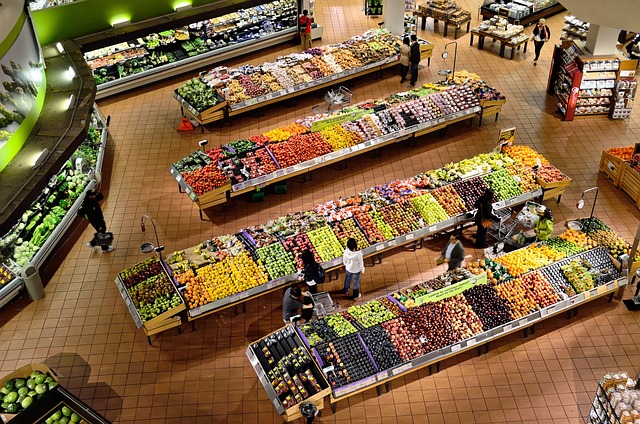Probiotic Powerhouses: The Best Foods and Supplements for Gut Health
If you’re looking to improve your gut health, probiotics are a great place to start. Probiotics are live bacteria and yeasts that are beneficial for the digestive system. They help to maintain a healthy balance of bacteria in the gut, which can improve digestion, boost immune function, and even support mental health.
The Benefits of Probiotics
Probiotics have a variety of potential health benefits, including:
- Improved digestion
- Reduced inflammation
- Enhanced immune function
- Lowered risk of certain diseases
- Better mental health
While more research is needed to fully understand the effects of probiotics on health, there is a growing body of evidence supporting their use. Here are some of the best sources of probiotics:
1. Yogurt
Yogurt is perhaps one of the most well-known sources of probiotics. It is made by fermenting milk with live bacteria cultures, which convert lactose (milk sugar) into lactic acid. This process creates the tangy flavor and creamy texture of yogurt, while also introducing beneficial bacteria into the gut.
Look for yogurt that contains active, live cultures, such as Lactobacillus acidophilus and Bifidobacterium bifidum. Greek yogurt is a particularly good choice, as it is strained to remove excess liquid and is therefore higher in protein.
2. Kefir
Kefir is a fermented milk drink that is similar to yogurt, but contains a wider variety of bacteria and yeasts. It is made by adding kefir grains (a mixture of bacteria and yeast) to milk and allowing it to ferment. This creates a tangy, slightly effervescent drink that is high in probiotics.
Kefir is particularly rich in lactobacilli and bifidobacteria, which are two of the most well-studied bacteria strains for gut health. It is also a good source of calcium, vitamin D, and protein.
3. Sauerkraut
Sauerkraut is a type of fermented cabbage that has been popular in Europe for centuries. It is made by shredding cabbage and fermenting it with salt and live cultures. This process creates a sour, tangy vegetable dish that is high in probiotics.
Sauerkraut contains a variety of bacteria strains, including Lactobacillus plantarum, which has been shown to improve gut health and reduce inflammation. It is also a good source of vitamin C and fiber.
4. Kimchi
Kimchi is a type of Korean fermented vegetable that is similar to sauerkraut. It is made by mixing vegetables (usually cabbage) with spices and seasonings, and fermenting it in a sealed container. This creates a pungent, spicy dish that is high in probiotics.
Kimchi contains a variety of bacteria strains, including Lactobacillus brevis and Lactobacillus plantarum. It is also a good source of vitamin C, vitamin K, and iron.
5. Supplements
If you’re not a fan of fermented foods, or simply don’t consume them regularly, probiotic supplements are a good alternative. These supplements contain concentrated sources of beneficial bacteria, and can help to improve gut health and digestion.
Look for supplements that contain a variety of bacteria strains, and that have at least 10 billion colony-forming units (CFUs) per serving. It’s also a good idea to choose a supplement that has been tested for purity and effectiveness by a third-party lab.
Conclusion
Probiotics are an important part of a healthy diet, and can have a variety of potential health benefits. Some of the best sources of probiotics include yogurt, kefir, sauerkraut, and kimchi, as well as probiotic supplements. By incorporating these foods and supplements into your diet, you can help to improve gut health, boost immune function, and support overall well-being.







